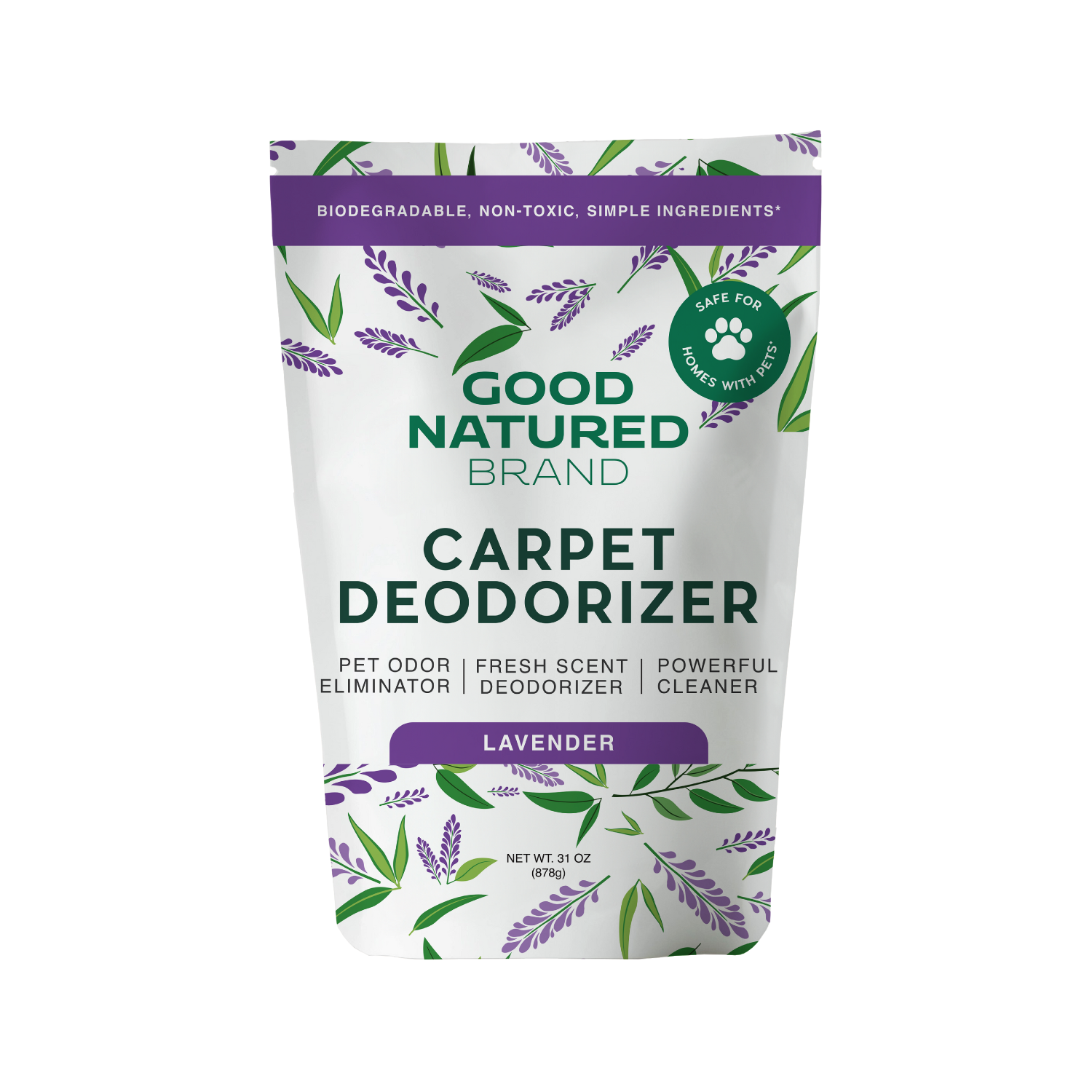If you've ever watched your dog approach another dog and immediately start sniffing their behind, you might have wondered why they engage in such behavior. While this can seem strange or humorous, butt sniffing is actually an essential form of communication for dogs. In this blog, we’ll explain the science behind this behavior, what it reveals about your dog, and why it’s crucial for their social interactions.
Dog Communication: More Than Just Barking
When you think about dog communication, the first thing that probably comes to mind is barking. While barking is a key form of vocal communication, dogs rely much more heavily on their sense of smell to interact with the world. Dogs are natural scent detectors, and much of their communication occurs through the scents they detect and leave behind.
The Role of Scent in Dog Behavior
Dogs have an extraordinary sense of smell—estimated to be anywhere from 10,000 to 100,000 times more powerful than that of humans. This remarkable ability allows them to gather information about their environment, other animals, and even humans. Their sense of smell is so sophisticated that they can detect emotions, illnesses, and other dogs’ identities based solely on their scent.
When dogs meet each other, they sniff each other as a way of gathering information. While the nose-to-tail sniffing behavior may seem odd to us, it’s one of the most important ways dogs communicate. By sniffing another dog’s behind, they are able to learn a lot about the other dog’s identity, health, and emotional state, among other things.
Why Dogs Sniff Each Other’s Butts
Butt sniffing is a completely normal and natural behavior for dogs. In fact, it’s one of the primary ways dogs greet each other and gather essential information. The source of this scent comes from the anal glands, small sacs located near a dog’s anus. These glands secrete a unique scent that is different for each dog. When a dog sniffs another dog’s behind, they’re essentially reading a chemical “signature” that tells them everything they need to know.
This scent provides important information, such as:
-
Age: Older dogs have different scents than younger ones, so sniffing their behind helps a dog determine the age of another dog.
-
Gender: A dog can tell if another dog is male or female by sniffing their behind.
-
Health: A dog can detect whether the other dog is healthy or sick based on the scent produced by their anal glands.
-
Emotional State: Dogs can even sense whether another dog is feeling stressed, happy, or anxious based on the pheromones in the scent.
The Science Behind Butt Sniffing in Dogs
The anal glands play a crucial role in dog communication. These glands secrete a scent that carries specific chemical markers, which other dogs can detect with their powerful sense of smell. These secretions help dogs identify each other, much like how humans use names to recognize one another.
The scent in a dog’s anal glands is unique to each individual, which means that no two dogs have the same scent profile. When one dog sniffs another’s behind, they are essentially gathering data about the other dog’s identity and emotional state. This behavior is entirely instinctual, and it helps dogs navigate their social environment.
The process is similar to how humans shake hands or greet each other with a hug. For dogs, sniffing each other’s behind is simply their way of saying “hello” and gathering information in a socially appropriate manner. It might seem strange, but for dogs, it’s a natural and necessary part of their social behavior.
Link to Good Natured Brand Blog for more insights on dog behavior and communication.
The Psychological Impact of Butt Sniffing on Dogs
While butt sniffing is primarily a form of communication, it also has psychological benefits for dogs. This behavior helps them build relationships, understand each other’s boundaries, and establish social hierarchies. Here’s a closer look at the psychological impact of this behavior.
A Sense of Security and Trust
When dogs sniff each other’s behinds, they are engaging in a non-threatening form of communication. This behavior helps to establish trust between dogs, as it’s a way of learning about each other’s identities without the need for aggression. A dog that allows another dog to sniff its behind is showing a level of trust, and in turn, the dog doing the sniffing is signaling that they mean no harm.
In a social group of dogs, sniffing behinds can also help establish who is the leader or dominant figure in the group. This helps reduce the potential for conflict and keeps interactions peaceful. Dogs that have strong social bonds may be more relaxed when engaging in butt sniffing, as it helps reinforce the bond and communication between them.
Butt Sniffing as a Sign of Curiosity
Puppies and younger dogs are often more curious and exploratory, and they may engage in more frequent butt sniffing than adult dogs. This behavior is part of their learning process as they begin to understand their environment and other dogs. Puppies use sniffing to gather information and learn about the world around them, and butt sniffing is one of the first ways they get to know other dogs.
As dogs mature, they may continue to engage in butt sniffing, but they usually do so with a more defined sense of purpose. Adult dogs will likely sniff another dog’s behind as a way to assess whether the dog is a suitable playmate, a potential rival, or a friendly companion.
Butt Sniffing as a Social Bonding Activity
In multi-dog households, butt sniffing often serves as a form of social bonding. Dogs that live together or frequently interact will use sniffing as a way to greet one another and reinforce their relationship. It helps establish trust and ensures that all dogs within the group are aware of each other’s presence and social standing.
In some cases, a dog may sniff the behind of another dog as a way to initiate play or simply to say hello. This type of social behavior helps build positive relationships and maintain harmony within a pack or group of dogs.
Why Some Dogs Are More Interested in Butt Sniffing Than Others
While most dogs engage in butt sniffing, not all dogs show the same level of interest. Some dogs may be more social and curious, while others may be more reserved or anxious about interactions. A dog’s breed, age, and personality all play a role in how much they engage in this behavior.
-
Different Breeds, Different Behaviors: Some dog breeds are more social and outgoing, while others may be more independent or cautious. For example, breeds like Golden Retrievers and Beagles are generally more social and curious, making them more likely to engage in frequent butt sniffing.
-
Training and Socialization: A dog’s level of socialization can also affect their interest in butt sniffing. Dogs that have been well-socialized from a young age are generally more comfortable around other dogs and are more likely to engage in this behavior.
When Is Butt Sniffing a Problem?
While butt sniffing is a natural behavior, there are situations where it can become problematic. Understanding when this behavior may be indicative of an issue is essential for every dog owner.
Overly Intense Sniffing and Aggression
In most cases, butt sniffing is harmless, but it can sometimes escalate into aggressive behavior. If a dog is overly focused on sniffing another dog’s rear end, especially in a way that seems intrusive or obsessive, it can lead to tension between dogs. This can be a sign of dominance issues, territorial behavior, or anxiety.
If your dog becomes aggressive or overly persistent in sniffing other dogs, it might be a sign of stress or insecurity. Dogs that are stressed may exhibit more forceful or frequent sniffing behavior as a way to assert control or ease their anxiety.
To manage overly intense sniffing behavior, consider redirecting your dog’s attention using positive reinforcement. For example, when they start sniffing excessively, redirect them with a toy or treat, and reward them for focusing on something else. This method can help your dog learn more appropriate social behaviors.
When Dogs Refuse to Sniff
On the flip side, some dogs may avoid butt sniffing altogether. If your dog refuses to engage in this behavior, it might be due to shyness, fear, or past trauma. Dogs that haven’t been properly socialized or that have had negative experiences with other dogs may shy away from sniffing and may prefer to keep to themselves during social interactions.
If your dog consistently avoids butt sniffing or seems uncomfortable around other dogs, it’s important to assess their socialization history. Gentle exposure to other dogs and positive reinforcement during these interactions can help them become more comfortable and confident in social situations. This gradual approach can foster positive relationships with other dogs and reduce anxiety.
How to Manage Butt Sniffing Behavior
Managing your dog’s butt sniffing behavior requires understanding the social and emotional factors at play. While it’s natural for dogs to engage in this behavior, there are steps you can take to ensure it remains appropriate and respectful, both for your dog and for other pets.
Positive Reinforcement and Training
Training your dog to approach other dogs respectfully can help manage their sniffing behavior. Positive reinforcement is an effective method for teaching your dog appropriate social behaviors. When introducing your dog to another dog, encourage polite behavior by rewarding them when they greet each other calmly. If your dog starts to get too focused on sniffing, gently redirect them and reward them for maintaining appropriate behavior.
Consistency is key when training your dog to approach other dogs in a calm manner. Over time, your dog will learn to engage with other dogs respectfully without becoming overly fixated on sniffing.
Socializing Your Dog to Minimize Aggression
Socialization is essential for helping your dog feel comfortable around other dogs and reducing aggressive or anxious behavior. Early socialization can prevent many behavioral problems down the road. If your dog is uncomfortable or aggressive when meeting other dogs, consider enrolling them in a dog training or socialization class. These classes provide a controlled environment where dogs can interact with other pets in a supervised, safe way.
For dogs that are more socially anxious, gradual introductions to new dogs are important. Start by allowing your dog to observe other dogs from a distance, and over time, decrease the distance as they become more comfortable. This step-by-step approach can help reduce anxiety and improve their social skills.
Avoiding Overexposure to New Dogs
While socialization is important, overexposing your dog to unfamiliar dogs too quickly can lead to stress and discomfort. It’s important to introduce your dog to new dogs in a slow, controlled manner. This will give your dog the time they need to adjust to new experiences and reduce the likelihood of behavioral issues such as excessive sniffing or aggression.
If your dog seems overwhelmed by the presence of other dogs, allow them to take a break and return to the safety of their familiar environment. This gives your dog the chance to relax and decompress before engaging with other dogs again.
Keeping Your Dog Clean and Healthy
Butt sniffing and social interactions with other dogs can leave your dog vulnerable to certain hygiene issues, such as anal gland problems and skin infections. Maintaining a clean and healthy environment for your dog is essential to prevent discomfort and potential health issues.
Why Hygiene Matters in Dogs Who Sniff Each Other’s Butts
Since dogs engage in butt sniffing, it’s crucial to maintain good hygiene in your dog’s rear end and the surrounding areas. The anal glands, which are responsible for the scent dogs exchange during butt sniffing, need to be kept clean to prevent discomfort, infections, or odors.
Regularly check your dog’s anal glands for signs of impaction or infection. If your dog seems to be licking or scooting their rear end, it could indicate an issue with their anal glands, and a visit to the veterinarian may be necessary.
Grooming Tips for Dogs Who Engage in Butt Sniffing
For dogs that frequently sniff other dogs’ butts, regular grooming is essential to ensure they stay clean and comfortable. Wash your dog’s rear end regularly to remove any debris or buildup that can result from anal gland secretions. Make sure to use a gentle, pet-safe cleanser that won’t irritate your dog’s skin.
In addition to cleaning their rear end, it’s important to groom your dog’s coat regularly to keep their fur free of dirt, debris, and odors. Brushing your dog’s fur regularly will help prevent matting and tangling, which can trap odor-causing bacteria and make it harder to keep your dog clean.
To ensure your dog’s bedding is also clean, use Laundry Powder designed for pet care. This will help keep their bedding fresh and free from any unpleasant smells related to butt sniffing.
Eliminating Pet Odors in the Home
Even though butt sniffing is a natural behavior, it can leave behind unpleasant odors in your home. To keep your living space smelling fresh, it’s important to clean areas where your dog frequently rests, plays, or interacts with other dogs. Regular cleaning of carpets, floors, and furniture will help remove odors and pet hair.
Use Carpet Deodorizers to eliminate pet odors from your floors and carpet. These deodorizers are formulated to neutralize odors, making your home more pleasant for both you and your dog.
For cleaning surfaces around the house, such as counters, furniture, and walls, All-Purpose Cleaner is an excellent choice. This product is safe for pets while still being tough on dirt, grime, and odors, ensuring your home stays clean and fresh.
Keeping Your Dog’s Bed Clean and Fresh
Your dog’s bed is an important part of their overall comfort, especially if they engage in butt sniffing and other social behaviors. Ensure that your dog’s bed is regularly cleaned to prevent odors and bacteria buildup. Wash their bedding with Laundry Powder to ensure it stays fresh and hygienic.
Regularly replacing or cleaning your dog’s bed will provide them with a clean, comfortable space to rest, away from the smells and discomfort that can come from being around other dogs.
Final Thoughts on Why Dogs Sniff Each Other’s Butts
Butt sniffing is a natural and important behavior for dogs, offering valuable insights into their communication, social structure, and health. While this behavior is often misunderstood, it serves as a vital part of how dogs interact with one another and assess their environment.
By understanding the science behind butt sniffing and managing the behavior appropriately, you can help your dog maintain healthy social interactions with other dogs while ensuring a clean and comfortable environment for both your dog and your home.
For more tips on dog behavior, health, and hygiene, explore the Good Natured Brand Blog. And don’t forget to use products like Carpet Deodorizers, Laundry Powders, and All-Purpose Cleaners to keep your home fresh and your dog happy.











